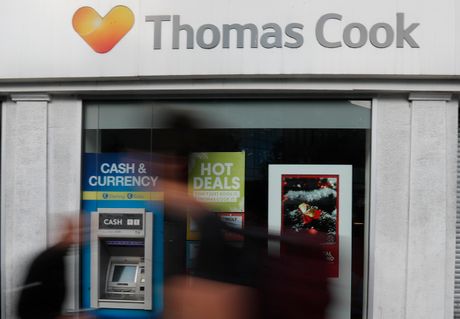
The collapse of one of the largest travel groups will affect Serbs as well. We reveal how
We can expect travel arrangement prices to increase, YUTA (National Association of Travel Agencies) President Aleksandar Senicic has told Telegraf.
What actually happened, and did the company really collapse overnight?
"It didn't happen overnight. It's a company with a great history and ideology that was better suited to another time. They wanted to get involved in new trends and in the last ten years started buying small tour operators, both in England and in Europe, and even some larger companies. They came to own two large airlines and wanted to have everything under one roof," explains Senicic.
He recalls that big money had been invested in online booking systems that are not directly connected with Thomas Cook, but where the company is a majority owner or a co-owner.
"This is a very risky business. When you work with millions of travelers during a year, you may not be able to sell all of these arrangements because of some unforeseen circumstances. It's enough to fail sell a couple of tens of thousands of beds in one year, to have a minus of tens of millions of euros. That then draws empty seats on planes and so on, and when this series starts, it can't just stop. There could be cancellations, or the flights could go ahead, even if it's only ten people," he says.
As a rule, large companies don't cancel flights because of their position in the market and their hope to cover this by some other revenue.
"Nothing happened overnight. That loss of one billion and a change that has occurred in the last ten or fifteen years - they could not see through the plans they had set for themselves, and that's that," Senicic tells us.
Asked if the public could have been warned, he said that would've been very difficult, otherwise things wouldn't have come to this.

"They were probably hoping until the last moment that something would work. They were counting on their integrity, size, that an investor might come along, but that didn't happen even though they negotiated with several investors from the Middle and Far East. However, obviously no one wanted to get in a company that was falling apart that way."
"It's a big system, if you were to publicly announce the problem, you wouldn't have a single penny in revenues, no one would buy anything," said Senicic.
He goes on to explain that the bankruptcy of this company will have a great impact not on travelers but on the economies of the countries where the British fly the most - Spain, Portugal, Greece and Italy.
"They pay a year back, so this year they paid for 2018. This will reflect badly on entire economies of these countries, not only on those most popular among Westerners, but also, for example, on our country."
He added that for us and our tourists this means either more accommodation options or more expensive arrangements. However, the latter scenario is more likely.
"Due to increased capacities, we may be able to get some cheaper arrangements. But this can cause hoteliers to be more rigorous in seeking advance payments, which will then naturally increase the cost of doing business and therefore raise the price of an arrangement," he said.
"At this time we don't know, but it will be interesting to see how this problem will be solved. Their refunds don't cover 90 percent of things, the question is how they will get some people back on regular lines. I think it will be an agony," Senicic says.
Thomas Cook, one of Britain's oldest tour operators, operated hotels, resorts and airlines serving 19 million people each year in 16 countries, according to British agencies.
The financial collapse will be a big blow to hoteliers, since many holiday arrangements are not prepaid. Many hotels are expected to record losses related to the payment of holiday arrangements for the last two months, which means many millions of euros. The competent Greek ministry has already announced that hoteliers will go to courts to try to collect the money owed to them by Thomas Cook.
Currently, more than 500,000 British citizens are traveling, and more than 50,000 people are stranded in Dubrovnik and in Greece alone. Trade unions and the British opposition Labour Party have called on the government to intervene financially to save jobs if the company fails to raise the necessary funds from the private sector.
(Vesna Bjelic)
Video: Srbe sa KiM koji pešače ka Beogradu u Čačku dočekali meštani sa posluženjem
Telegraf.rs zadržava sva prava nad sadržajem. Za preuzimanje sadržaja pogledajte uputstva na stranici Uslovi korišćenja.

